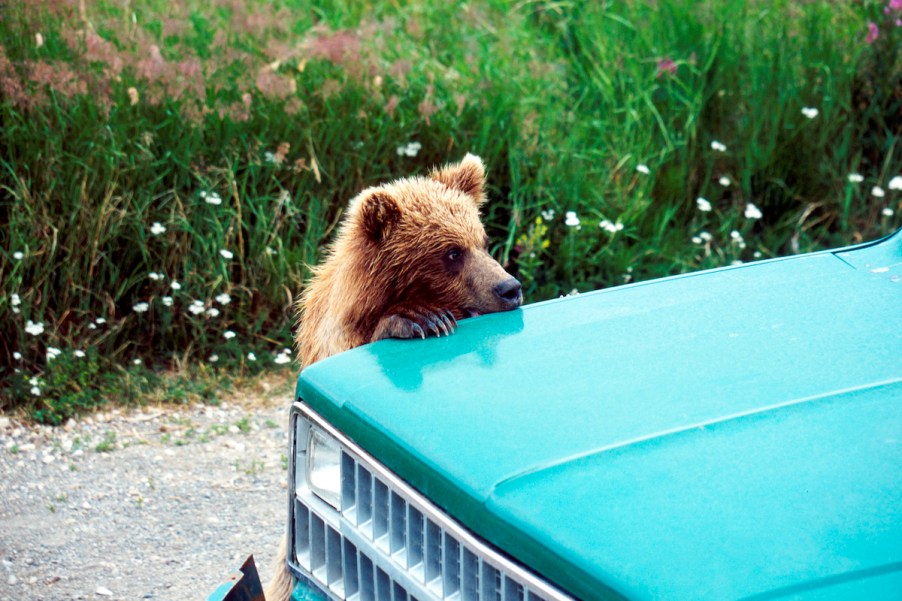
What You Should Never Do if You Find a Wild Animal in Your Car
Wild animals are meant to be in the wild and do not fare well when they get too close to civilization. The scent of food inside cars can entice hungry animals to break into vehicles, causing significant property damage. Campgrounds often encourage campers to use bear boxes to store food to avoid enticing wild animals.
But recently, in a small town south of Sedona, Arizona, the lure of a bag of Cheetos inside an open vehicle proved irresistible to a wild javelina.

Don’t feed the animals
The Yavapai County Sheriff’s Office responded to a call of a wild javelina stuck inside a Subaru station wagon this past April. According to the National Park Service, the animal, which resembles a wild boar, typically feeds on desert plants, roots, and flowers.
This particular pig-like creature was tired of its typical vegetarian diet and climbed into the Subaru to get ahold of a bag of Cheetos. NBC News reported that the vehicle’s owner had inadvertently left the hatchback open overnight. When the javelina jumped inside, the hatchback closed, trapping the animal.
Making matters worse, the javelina accidentally hit the gear shifter, knocking the car into neutral. The vehicle coasted down the driveway and stopped under some trees across the street.
Fortunately, no one was injured. When deputies arrived, they opened the hatch, and the javelina made a quick dash back into the wild. However, the wagon’s dashboard and door sustained damage during the bizarre incident.
“As a reminder, if you’re in the Southwest, you probably already know it’s best not to feed javelina,” the sheriff’s office said. “Yes, it’s tempting, but when wild animals are fed by people, it draws them into neighborhoods and can create unnecessary conflicts.”
Don’t panic if you find a wild animal in your car
Utah State University says it’s not uncommon for animals to seek shelter inside vehicles. “Sometimes these unwanted visitors will enter and leave without you ever knowing,” USU explains, “but other times they can inadvertently cause damage that can be obvious and severe.”
If you unexpectedly find a wild animal inside your car, USU recommends walking away for several minutes until the animal leaves. Resist the temptation to yell or bang on the hood because the animal might attempt to crawl into a “safer,” tighter spot, taking longer to leave. There’s also a risk of an animal attacking and causing personal injury if it feels threatened by your presence.
How to prevent animals from getting into your car
The best prevention method is to keep your car’s windows rolled up, doors locked, and hatchback closed when you’re not in the vehicle. Any possible point of entry could entice a wild animal to seek refuge in the confines of your car.
Also, don’t keep food, open leftover containers or wrappers, pet food, or items with a strong scent in your parked vehicle, even if the doors and windows are closed. Many wild animals have a keen sense of smell and can cause significant property damage trying to break into a vehicle to get food.
In addition, parking overnight in a garage will reduce the chances of a wild animal getting into your vehicle.
Taking these simple steps can keep you safe from unwanted visitors. Odds are you’ll probably never encounter a javelina in your driver’s seat, but it’s best to reduce the temptation for bears, raccoons, rodents, and other critters that might try to get into your car.


